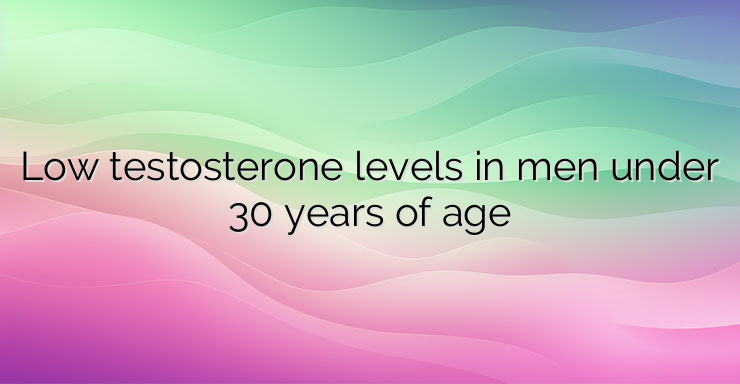A decline in testosterone levels can occur not only in men over middle age, but also in men under 30 years of age. According to studies, testosterone levels peak in men during adolescence and early adulthood. These levels typically decline by about 1% each year starting around age 30. But in some cases it can happen at an earlier age. Low testosterone is a medical condition in which the body does not produce enough of this hormone. Both men and women produce testosterone, but it is called the “male hormone” because men produce much more of it. It is critical for many male characteristics, including male genital development, sperm formation, muscle mass gain, voice mutation, and hair growth. Low testosterone can cause a variety of symptoms including – erectile dysfunction, infertility, loss of muscle mass, fat accumulation and baldness. In some cases, low testosterone is caused by unhealthy lifestyle habits that can be changed. In other cases, it is caused by an underlying medical condition that requires treatment. Symptoms of low testosterone can include: Erectile dysfunction; Decreased libido or sexual activity; Infertility; Hair loss; Reduced muscle mass; Increased body fat; Enlarged breasts (gynecomastia); Sleep disorders; Constant fatigue; Problems with memory and concentration; Depression Many of these symptoms can also be caused by other medical conditions or lifestyle factors. Low testosterone is a less common condition in men under 30, but it can still occur. Contributing factors for it include: High cholesterol levels; High blood pressure; Overweight or obesity; Consumption of excessive amounts of alcohol; Taking narcotic substances; Use of anabolic steroids Taking certain prescription drugs in excess, such as steroids and opioids; Some cases of low testosterone levels may be associated with other medical conditions, such as: Hypothalamic or pituitary disease or tumors; Trauma, tumors, or other conditions affecting the testicles, including inflammation associated with childhood mumps; Hereditary diseases such as Kallmann syndrome, Prader-Willi syndrome, Klinefelter syndrome or Down syndrome; Diabetes, liver disease or AIDS; Cancer treatment, such as radiotherapy and chemotherapy. Bibliography: Harman SM, Metter EJ, Tobin JD, Pearson J, Blackman MR. Longitudinal effects of aging on serum total and free testosterone levels in healthy men. Zirkin BR, Tenover JL. Aging and declining testosterone: past, present, and hopes for the future. J Androl.


Leave a Reply